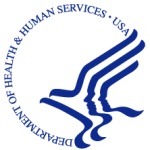- Industry: Government
- Number of terms: 33950
- Number of blossaries: 0
- Company Profile:
United States Department of Health and Human Services, Radiation Emergency Medical Management
The smallest type of blood vessel. A capillary connects an arteriole (small artery) to a venule (small vein) to form a network of blood vessels in almost all parts of the body. The wall of a capillary is thin and leaky, and capillaries are involved in the exchange of fluids and gases between tissues and the blood.
Industry:Health care
In medicine, a medical problem that occurs during a disease, or after a procedure or treatment. The complication may be caused by the disease, procedure, or treatment or may be unrelated to them.
Industry:Health care
A procedure to remove tissue from the cervical canal or the inner lining of the uterus. The cervix is dilated (made larger) and a curette (spoon-shaped instrument) is inserted into the uterus to remove tissue. Also called D&C and dilatation and curettage.
Industry:Health care
An abnormal patch of red and white tissue that forms on mucous membranes in the mouth and may become cancer. Tobacco (smoking and chewing) and alcohol may increase the risk of erythroleukoplakia.
Industry:Health care
The backward flow of stomach acid contents into the esophagus (the tube that connects the mouth to the stomach). Also called esophageal reflux and gastric reflux.
Industry:Health care
One of a pair of organs in the chest that supplies the body with oxygen, and removes carbon dioxide from the body.
Industry:Health care
A type of acupuncture in which a microwave device is attached to an acupuncture needle to give microwave radiation at an acupuncture point.
Industry:Health care
In medicine, it describes a procedure that does not require inserting an instrument through the skin or into a body opening. In cancer, it describes disease that has not spread outside the tissue in which it began.
Industry:Health care
